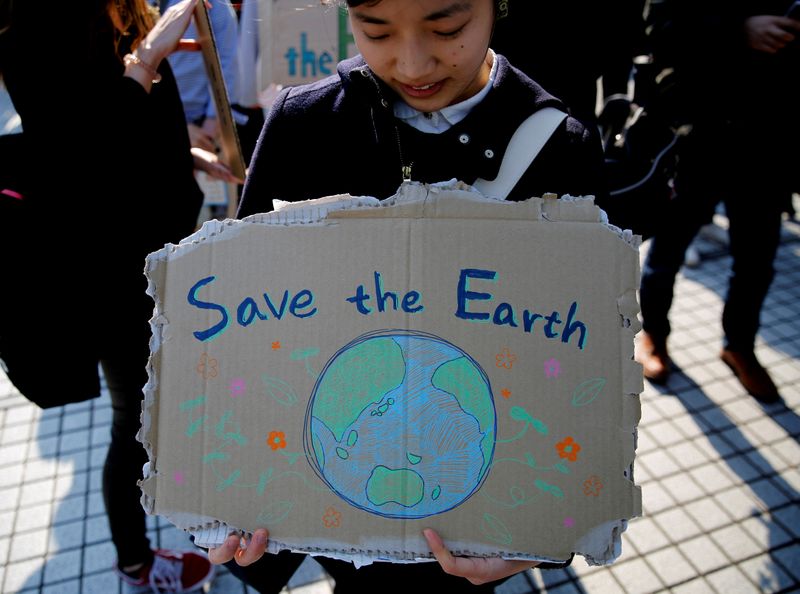TOKYO (Reuters) – Japan’s ruling coalition on Thursday proposed tax breaks on low-emission cars and green investments in a suite of incentives worth up to $612 million, as Prime Minister Yoshihide Suga puts carbon neutrality at the centre of his economic recovery plan.
Suga has vowed to cut greenhouse gas emissions to zero in 2050, bringing Japan in line with the European Union and ahead of China’s pledge to achieve the same goal by 2060.
In a nod to Suga’s ambition, his ruling Liberal Democratic Party (LDP) and its ally Komeito Party proposed tax exemptions for firms that increase carbon-free investment in their tax reform plan that will serve as a platform for the government’s tax policies for the year beginning in April.
The tax code revision will introduce national tax cuts of 50 billion to 60 billion yen ($478-574.60 million) and local tax cuts of 4 billion yen annually, LDP tax commission chief Akira Amari said.
The ruling coalition proposed extending by two years tax reductions for environmentally friendly cars and cutting the tax charged on aviation fuel to help airlines hit by the fallout from the coronavirus pandemic.
It also called for other steps to ease the blow from COVID-19 on households and businesses, such as an extension of tax breaks on mortgages and of corporate tax discounts for small and mid-sized businesses.
“We cannot tackle fiscal reform right now, but we must build a foundation to achieve it as soon as possible,” Amari said.
The tax plan follows Japan’s decision on Tuesday to compile a $708 billion economic stimulus package that features support for green and digital innovation.
Suga’s administration sees green innovation as a key area for Japanese business investment that could give the economy a much needed boost.
While Japanese carmakers have seen sales rebound from the pandemic’s hit, they have lagged their global peers in the race to develop electric vehicles.
(Reporting by Daniel Leussink and Tetsushi Kajimoto; Writing by Leika Kihara; Editing by Kim Coghill and Sam Holmes)























